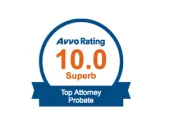Is your infirm parent or developmentally disabled child struggling with their daily financial and personal decisions?
Do you need to increase your level of assistance, but can’t because of legal red tape?
Maybe It’s Time For A Conservatorship
There are three types of conservatorship proceedings:
- General Conservatorship: This type of conservatorship is typically used to assist infirm seniors suffering from dementia. Any interested person can file a petition with the probate court to seek an appointment as a conservator.
- Limited Conservatorship: This type of conservatorship is typically used for people born with developmental disorders such as autism. If you’re eligible for services from the Regional Center, then you’re likely a good candidate for a limited conservatorship. They are usually sought by parents when their child, the proposed conservator, is 17 years old, but may be requested anytime after they reach 18 years of age. Any interested person may seek an appointment as a limited keeper.
- LPS Conservatorship: These are typically used to help people experiencing psychosis (such as a mental or physical illness, substance abuse, suicidal thoughts, homeless tendencies, or extreme stress). That includes psychotic disorders, like bipolar and paranoid schizophrenia, that may manifest for the first time in a person’s late teens or early adulthood.
PLEASE NOTE: LPS Conservatorships cannot be started by private parties; therefore, we lack the authority to help anyone seek to conserve someone suffering from the conditions explained above. If you’re interested in an LPS Conservatorship, please work with the staff at a treating facility or with the county public guardian’s office.
Conservatorship Scope: You can seek conservatorship of the person conservatorship of the estate, or both.
Conservatorship of the Person: gives you power over the conservator’s personal decisions. Those powers are often limited by the court, however.
Conservatorship of the Estate: gives you the power to manage the conservator’s assets. The conservator usually has the duty to file accounts with the court.
Emergency Conservatorship: you may be appointed as a temporary conservator to manage urgent matters until the date of the formal conservatorship hearing.
We Can Help You With All Limited Or General Conservatorships.
We do that by determining the nature and scope of conservatorship required and properly preparing and filing the necessary paperwork with the right court. We obtain waivers and consents (when appropriate), provide adequate notices, and work with the probate court’s investigator. We also represent you at the hearing.
Once you’re appointed, you will receive “Letters of Conservatorship.” It’s a judge-signed document that gives you proper legal authority to make decisions on behalf of the conservator. Afterward, we help prepare probate code-compliant financial accounting if required.
Call Now To Schedule Your Consultation Discover:
- If it’s the right time to start a conservatorship proceeding;
- Insight into what California courts desire before appointing you as a conservator;
- If fees and costs can be reimbursed to you from the conservator’s assets after your appointment; and
- Your post-appointment duties and responsibilities.




